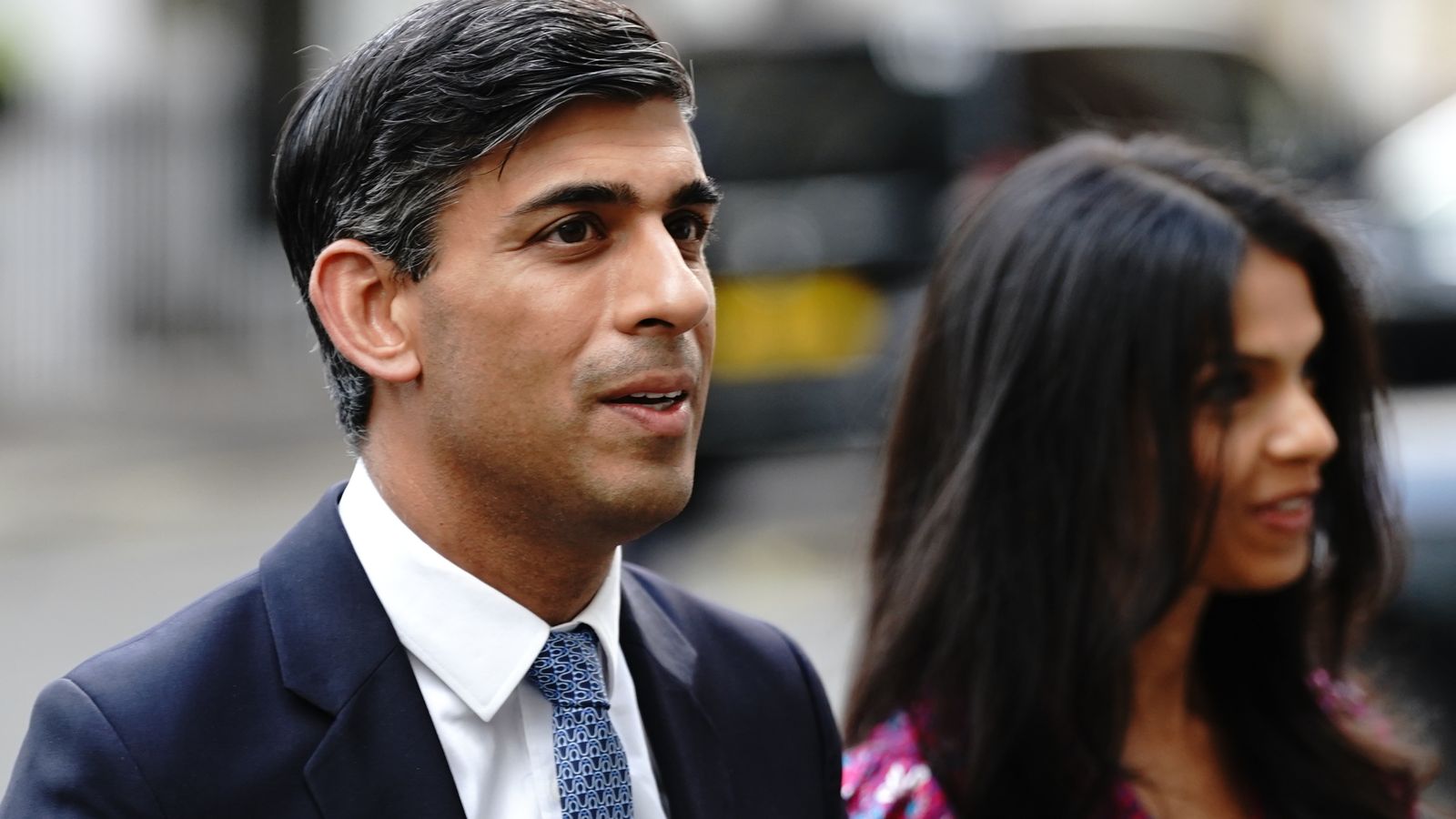Rishi Sunak will not face sanction after confidentiality rules breach judged ‘inadvertent’

Rishi Sunak will not face a sanction for breaching confidentiality rules around the investigation into his original failure to declare his wife’s shares in a childcare company that benefitted from the budget.
Parliament’s standards committee, which scrutinises the behaviour of MPs, found Mr Sunak’s breach of confidentiality rules was “inadvertent”.
Standards commissioner Daniel Greenberg opened an investigation into the prime minister at the end of March following a complaint that he failed to declare his wife’s shares in childcare company Koru Kids during a session before the liaison committee.
Later that month the investigation, which looked into whether Mr Sunak breached the MPs’ code of conduct, was extended to include another possible breach over disclosing details about the ongoing investigation.
It came after a Downing Street spokesperson was reported as saying Mr Sunak would co-operate with the inquiry.
Mr Greenberg found Mr Sunak had broken the confidentiality rules – but he noted that the prime minister co-operated fully and that he subsequently said that “with hindsight, he would have made arrangements to restrict the disclosure of information by his office on his behalf”.
However, the matter was still referred to the standards committee as a breach was found.
The committee report today agreed with the findings, but it also found that it was inadvertent.
It said no details that were not already public were disclosed and not all communications from Downing Street would be directly authorised by the prime minister himself.
Advertisement
In the budget, Chancellor Jeremy Hunt announced a pilot of incentive payments of £600 for childminders joining the profession, a sum that doubles to £1,200 if they sign up through an agency.
Koru Kids was one of six childminder agencies in England listed on the government’s website when the policy was announced. Ms Murty was listed as a shareholder in the most recently filed paperwork for the business on Companies House.
The investigation was looking into whether Mr Sunak breached paragraph 6 of the MPs’ code of conduct, which states MPs “must always be open and frank in declaring any relevant interest in any proceeding of the House or its committees, and in any communications with ministers, members, public officials or public office holders”.
Downing Street sources confirmed the probe was in relation to Ms Murty’s shares in Koru Kids, which welcomed Mr Hunt’s announcement to offer cash incentives to childminders.
But a spokesperson insisted the interest had been “transparently declared”, saying the PM would be “happy to assist” Mr Greenberg with his inquiry.
Days later, and after pressure from opposition parties, the delayed ministers’ register of interest was published with a footnote showing Ms Murty’s Koru Kids shares.
In August Mr Greenberg found that Mr Sunak “inadvertently” broke the code of conduct for MPs by not correctly declaring his wife’s financial interests.
The standards commissioner ruled that Mr Sunak “confused” declaring his interests as a minister with registering his interests as an MP.
Read more:
Hunt for new parliament sleaze watchdog after Chris Bryant moved to Labour frontbench
Tory MP Chris Pincher to resign after suspension from Commons over groping allegations
This list of interests for members of the government is separate from the registration of interests that all MPs have to maintain.
Mr Greenberg said: “In accordance with the code, Ms Murty’s shareholding was a relevant interest that should have been declared during the Liaison Committee meeting on 28 March 2023.”
He concluded that he was satisfied the prime minister had “confused” the two separate registration processes.
“I formed the view that the failure to declare arose out of this confusion and was accordingly inadvertent on the part of Mr Sunak,” Mr Greenberg said.
In a letter to the commissioner, Mr Sunak said: “Should this scenario arise again, I have acknowledged that I have a duty to write to the committee after my appearance to correct the record.
“I accept and once again apologise that my letter to the Liaison Committee on 4 April 2023 was not sufficiently expansive, as it confused the language of registration and declaration.”